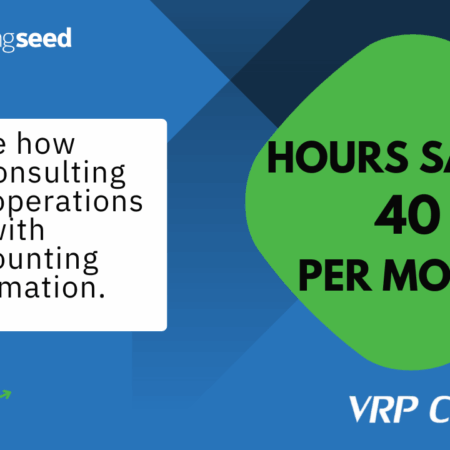
To stay stable as a freelancer, it’s important that you organize your finances. While freelancing offers a ton of advantages like working from home and choosing your own hours, there are still certain challenges. Unlike traditional jobs where there is a fixed monthly income, freelancers might not have a steady paycheck.
Due to this irregular income, it’s important that freelancers properly organize their finances. This is essential for saving money and avoiding debt. In this article, we will share tips that will help you organize your finances as a freelancer. Let’s get started.

Separate Your Business Account from Your Personal Bank Account
The first thing to do when starting out as a freelancer is separating your business and personal finances. There are actually many benefits to having separate bank accounts. Let’s see a few.
A business account will give you a clear understanding of your finances:
For example, the monthly statement report from your bank will let you know the exact amount you make each month, your expenses, and how much you have saved. This knowledge will be valuable when budgeting.
A business account provides more options for transacting with customers:
A business checking account is most suited for running a business. They come with more services than a personal checking account. For example, most personal accounts do not allow you to receive payment via a credit card. A business bank account allows businesses to create merchant accounts. This allows organizations to accept both debit and credit card sales using a merchant account (for a fee). Some business accounts also allow you to receive digital checks.
Tip: One way you can improve your client experience is by offering them multiple payment options. A business account allows you to do this.
It’s easier to track business deductions:
A tax deduction is also called a “tax write-off.” These are expenses that you can deduct from your taxable income. As a freelancer, business deductions can be money spent on software or laptop. Depending on your business model, there are up to 100 small business tax deductions you can deduct when filing your taxes. A business account will make it easy to track and categorize these business deductions.
Prepares you for a tax audit:
A business account gives you accurate documentation of your income and expenses. A business account will also reduce the risk of human error. This will come in handy during a tax audit. As a freelancer who is most likely working from home, it’s critical that you have a system for managing your revenue and expenses. The business account will help you stay more organized.
Make Use of Invoices
It’s important that you offer invoices to all of your clients. An invoice is the best way to request payment from your clients. Not only do invoices serve as legal proof for services offered, they also help you easily track income. You’ll be able to:
- Identify your income sources.
- Determine who your highest paying clients are.
- Determine how much you earn in a month.
- Predict your future monthly earnings to budget adequately.
Organize Your Finances with a Budget
As a freelancer, it’s important that you create and follow a monthly budget. Unlike people with traditional jobs, your income will vary from month to month. Having a budget will help you figure out how much you need to earn monthly to meet expenses. This is also the best way to avoid and manage debts.
Follow these steps when creating your budget:
-
- Review your income sources to estimate how much you will make.
- Identify all of your business expenses.
- Subtract your forecasted expenses from your forecasted revenue to plan ahead and prepare for available cash.
- If the result is negative, review your budget until it is balanced. You can do this by prioritizing what you spend on. You don’t want your expenses to be more than your estimated earnings.
Here is an example of a balanced budget of a freelance marketer:
| Revenue | Surplus |
| Blog Writing: $2651 | Rent: $2,000 |
| SEO Consulting: $4,782 | Utilities: $1,500 |
| Email Campaign Management: $4,399 | SEO Tools: $500 |
| Social Media Management: $958 | Hosting: $300 |
| Online Course: $3,000 | |
| Office Supplies: $500 | |
| Total: $12,790 | Total: $7,800 |
| Surplus: $4,990 | |
In this example, the expenses are not more than the revenue. So the budget balance is in the positive. When tallying the expenses for your monthly budget, here are some of the things you should consider:
- Feeding: Calculate how much it will cost you to eat every month. Avoid eating out unless the bill will be taken care of by the client.
- Housing: When budgeting, include your monthly rent and rental insurance. If you live in your own house, budget for mortgage payments and homeowner insurance.
- Utilities: Utilities are the things you will need for a comfortable living and working space. They include bills like internet, telephone, electricity, water, gas, security systems, cable TV, etc. These are some of the things you should add to your budget.
- Transportation: Also budget your transport costs for the month. Include things like car payments, gas, and insurance.
- Medical bills: Budget for any medical emergency that might come up. Also budget for medical insurance and prescription medications that you take regularly.
When creating your budget, also include emergency savings. It’s important that you also save towards retirement. Budgeting can be difficult as a freelancer, but you need to stick to it. It helps you manage your finances better. You are less likely to spend above your monthly income when you budget.
Tip: When creating your budget, always underestimate your monthly income. Do not create an unrealistic budget in the hope that you will earn more. It’s safer to be under budget than over budget.
Pay Yourself First
Paying yourself first means automatically transferring a portion of your monthly revenue to a savings account. The key reason you should pay yourself first is so that you can save before making unnecessary expenses. These savings can be towards your retirement fund. This also ensures that you have enough in case of emergencies. See tips to save more even if you are an impulsive spender.
Plan for Unexpected Emergencies
Since you cannot see the future, it’s important that you plan for emergencies. As a freelancer, there are bound to be fluctuations in your monthly income. Unexpected emergencies can still come up though. For example, your work laptop might break or a health emergency might crop up. If you don’t plan for such emergencies, you will be strapped for cash.
The best way to prepare for unexpected emergencies is by including an emergency fund in your budget. Always automatically transfer some money into an account each month for emergencies.
Invest in Accounting Software
When it comes to organizing your finances, it’s best practice to automate as much as possible. Most freelancers when starting out make use of spreadsheets like Excel to manage their finances. But Excel can cause problems. For one thing, relying on these spreadsheets is very time-consuming. You will have to manually input every piece of information. This only gets more time-consuming and more difficult with more data to manage.
To simplify the whole process, make use of accounting software to help you manage your finances with ease. A great option you can check out is Accounting Seed. Accounting Seed is a robust accounting platform that will help you easily manage your finances.
Some of its useful features for freelancers include:
- Billing automation
Accounting Seed makes it easy to bill your client. You can deliver your invoices to clients straight from the application. It also has ACH payment processing. This will allow freelancers to receive payment conveniently and securely from their clients.
- Multi-currency
The platform allows you to easily collect payments in any currency. So if you are a freelancer that works with international clients, you won’t have to worry about getting paid. - Bank reconciliation
Bank reconciliation is the process where you ensure that your bank statement is reconciled with your bank account balance. The figures have to be the same or you are losing money somewhere. It’s important that freelancers reconcile their bank balances at the end of each month. Accounting Seed makes it easy to reconcile your bank statements to your account balance with minimal data entry. The app connects with over 14,500 banks and credit card companies. So you can easily monitor bank transactions. - Financial reports
Accounting Seed allows you to create in-depth financial reports needed to remain on budget and save money. With the click of a button, you can see all of your expenses and revenue for a specific time period. The solution also automatically calculates your profit and loss. This report will come in very handy when you are creating your budget.
See Accounting Seed in action
See how accounting on Salesforce can eliminate the need for costly integrations—and silos of mismatched information—by sharing the same database as your CRM.



